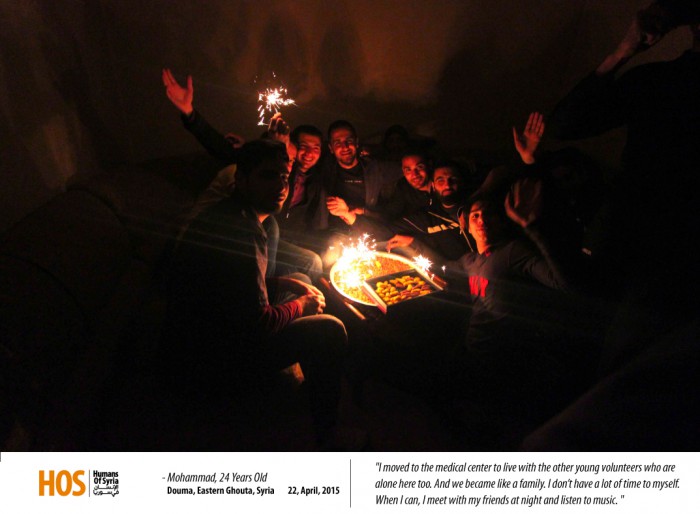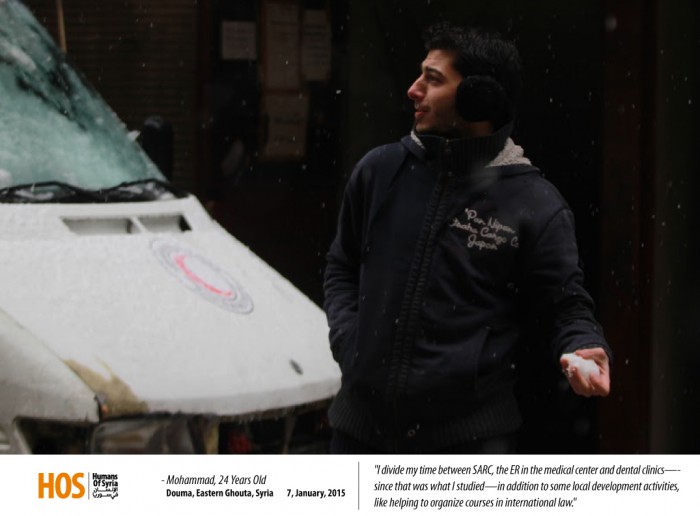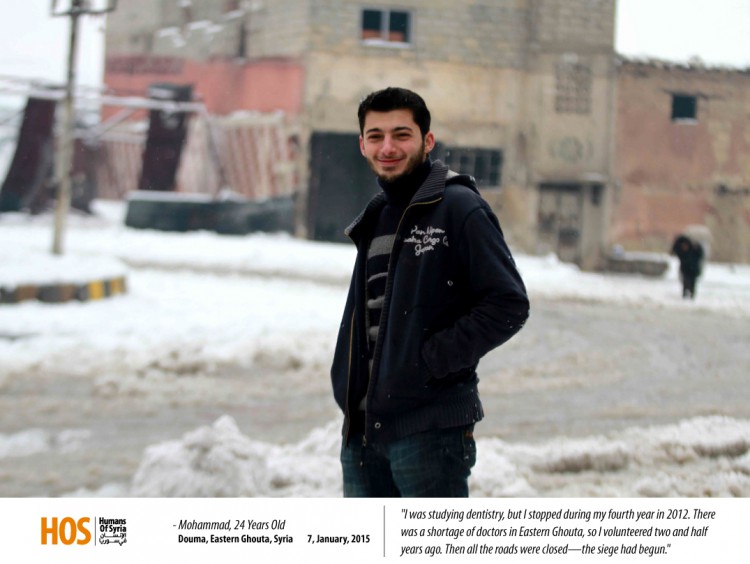While under siege in a very sad place in the world, a Syrian medical student volunteers to do some good and keep up with the world. Here is the 24-year-old Mohammad tells his story:
I was studying dentistry, but I stopped during my fourth year in 2012. There was a shortage of doctors in eastern Ghouta of Damascus, so I volunteered two and half years ago. Then all the roads were closed—the siege had begun.
In the beginning there were no centralized emergency points—just scattered groups of medical aid teams with whom I volunteered. Over time, a medical office was opened and I volunteered in the emergency department.

The idea of psychological support for children is to try to make them feel happy through a variety of activities within our capabilities and ideas. We sometimes organize entertainment activities for the injured children who have a long road to recovery and get bored and upset. We organize small concerts when they feel up to it to make them feel better. I am delighted when I see a smile on their faces; that’s when I feel I did my job well and I’ve made a great achievement.
There are many neighbourhoods here, which have been completely destroyed, and the children of those neighbourhoods are either injured or have lost family members and their homes, so we organize concerts and activities especially for them every now and then.
On the toughest days, we get huge numbers of wounded from the shelling and bombing. At the end of the day when I see we were able to provide medical services to them and help as many people as we can, I feel that I’ve made a great achievement in spite of how tired I might be.
At first I was one of those people who get dizzy at the sight of blood, and I was not able to leave someone in pain alone. I remember once I treated a little girl who lost her parents and was paralyzed from the bombing. I cried that day. But today, after all I’ve seen and the wounds I’ve faced on a daily basis, I lost these feelings and I’m not really affected anymore. I’m trying with all my energy now to save people without feeling too much.
I divide my time between SARC, the ER in the medical centre and dental clinics—since that was what I studied—in addition to some local development activities, like helping to organize courses in international law.
I live on my own in Eastern Ghouta. The first period was really hard. I learned how to cook and do laundry and all the housekeeping myself. But after a while I got bored and moved to the medical centre to live with the other young volunteers who are alone there too. And we became like a family. Everything I own is in my backpack, which I take with me almost everywhere.
I don’t have a lot of time for myself. When I can, I meet with my friends at night and listen to music. We sit and try to communicate with our relatives and friends and keep up with what is happening in the world. The Internet is the only thing that links us with the world outside the siege.

Every night before I go to bed—like so many people here—I contemplate leaving the siege, I know that a lot of things are waiting for me outside: My family, my friends, finishing university and graduating, but this the outside world has become completely foreign to me and sometimes even scary. After what I experienced these two years inside the siege I do not know if I will be able to cope when I go out. Sometimes I wish that the conditions would get better here so I’m never forced to leave.
Mohammad, 24 years old, eastern Ghouta of Damascus, Syria. All the credits are to Humans of Syria.


